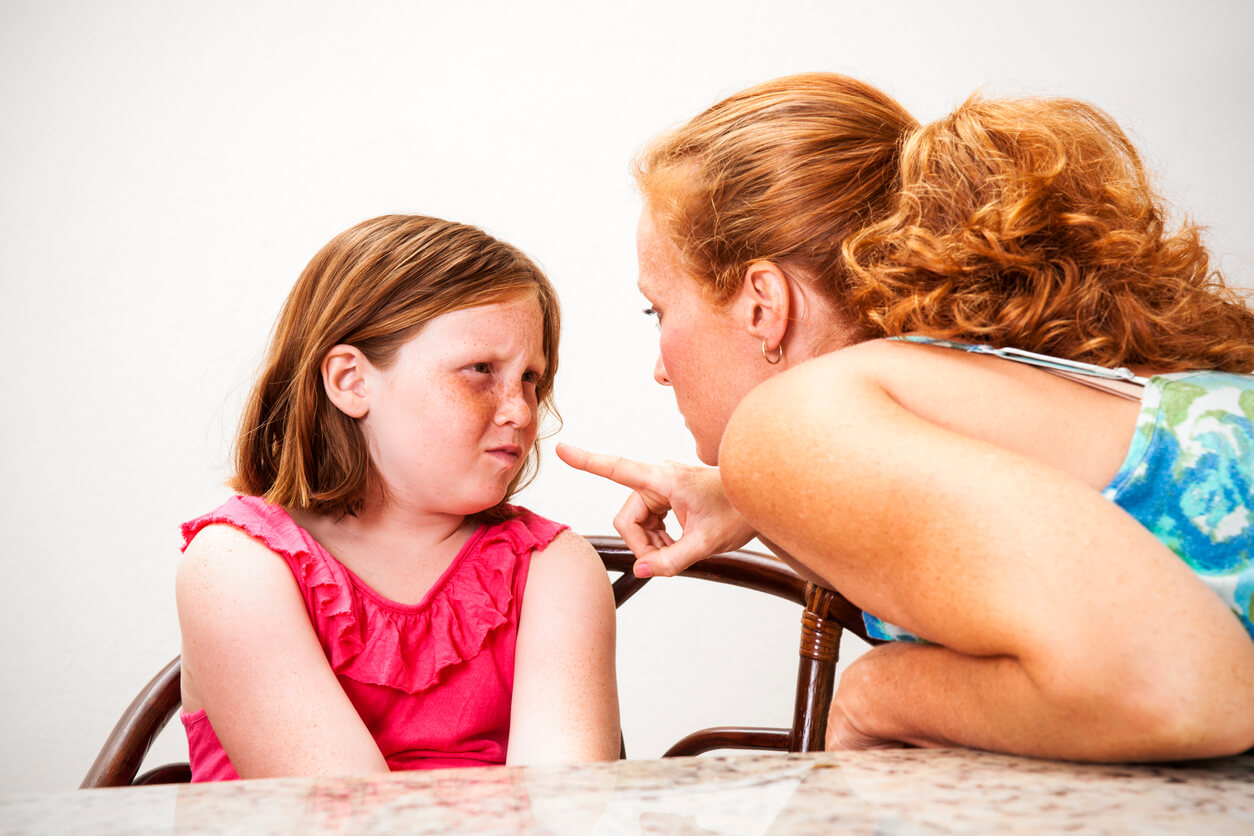Children's Brains Aren't Prepared to Obey Orders

As parents, we tend to worry more about our children listening to us than about other things. Are they well-behaved, are they good, are they obedient? It seems like you have to answer yes to all these questions in order to be a good child. But what if it turns out that children’s brains aren’t prepared to obey orders? We’ll tell you more in this article.
Insisting that children are constantly obedient can have several contraindications. When this happens, we deprive them of being the ones to form their own criteria. Children have their own development and, when they’re ready, they’ll obey. Keep reading to learn more about it.
Why children’s brains aren’t ready to obey orders
Many parents want obedient children. This happens because we’re under continuous stress on a daily basis and, when we get home, we don’t want to do the things our children should do themselves. So, we have to ask ourselves this question: Are we sure we want obedient children? Surely we’d all answer yes, because this way, we’d know that they’d do what they’re supposed to without us having to get on their case.
However, have we stopped to think that, by being so obedient, their way of thinking and their own criteria are annulled? Children’s brains aren’t prepared to obey orders, so doing so is counterproductive to the development of their own way of thinking.

Why does a child learn to be obedient?
If a child’s obedient, it’s for two clear reasons:
- Out of fear: They know that mom and dad are the ones in charge, that they’re stronger, and that they have more power. Therefore, the child obeys orders for fear of being punished.
- Because they give up: In this case, the child obeys because previously they didn’t listen and received many negative consequences from their parents (punishment and scolding). For this reason, they’re exhausted from receiving consequences.
Many of you will think, why is it bad for them to obey orders? The question is not whether it’s bad or good, but the fact that it has negative consequences in the development of their own thinking. That is, they’ll be fearful and hesitant to make decisions on their own because of the possible negative consequences.
Children need to develop their own criteria and thinking
Children, as they grow up, need to develop their own way of thinking and have their own criteria. That way, they’ ll be able to understand the world around them and act accordingly. That’s why children pay a lot of attention to how we parents act, think, and talk. Adults are their examples and guides.
If we get our children to trust us, but always with understanding and respect, we’ll help them to develop their own way of thinking and their own criteria. On the contrary, if we decide to educate them in obedience, we’ll condition them not to think for themselves.
That’s why it’s important that we educate our children based on respect, consensus, and understanding. We shouldn’t base our parenting on a vertical relationship in which what we say has to be done without hesitation, but rather on a more horizontal plane. Parents and children should be on the same level.

Recommendations for raising responsible and respectful children
Parents often raise their children to obey orders, rather than to be responsible and respectful. Below, we’ll give you some recommendations in this regard:
- Always emphasize the rules and limits that must be respected, as well as the behaviors that are tolerable or not. Children should be reminded of them frequently so that they learn them, but always with understanding and respect.
- Teach them how important it is to respect themselves, their environment, and others.
- Always opt for dialogue, negotiation, and conflict resolution instead of punishment.
- Let children express themselves, speak, and give their opinion when they need to.
- Use positive phrases instead of negative ones. For example, “when you finish your homework, let’s go to the park, if you have any questions, let me know”; instead of “if you don’t finish your homework on time, we won’t go to the park”.
- Assign them some responsibilities according to their age so that they can do them by themselves and feel proud of themselves.
- Let your children make mistakes and comment on their mistakes. These will help them learn.
The child must make their own decisions
You’ve already seen that children’s brains aren’t prepared to obey orders and that it’s not good to educate them in obedience. If we do it this way, we’ll annul their way of thinking, of making decisions, and of being themselves. For this reason, it’s important that you apply the recommendations we’ve given you in this article. This way, you’ll educate responsible and respectful children instead of obedient minors incapable of thinking for themselves.
All cited sources were thoroughly reviewed by our team to ensure their quality, reliability, currency, and validity. The bibliography of this article was considered reliable and of academic or scientific accuracy.
- Edith, R. B. N. (2003). Un estudio experimental de la obediencia en niños.
-
Edith, R. B. N. (2008). Un análisis de las relaciones poder-autoridad y sus efectos. Los casos experimentales de la obediencia y el cumplimiento en niños escolares.
